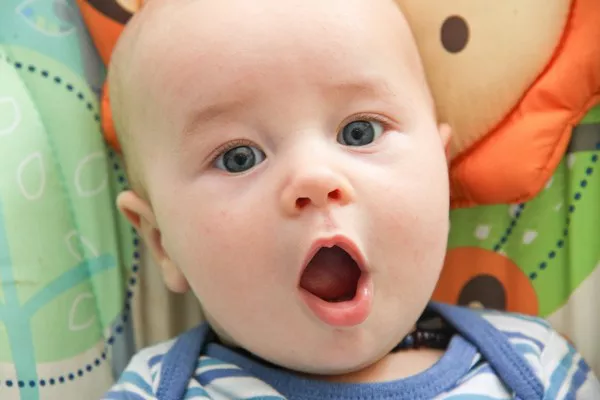Baby bottles are essential for feeding infants, and many parents wonder if it is safe to reuse the same bottle throughout the day. While convenience is important, ensuring the safety and well-being of your baby is paramount. In this article, we explore the considerations and guidelines for reusing baby bottles, examining factors such as hygiene, bacteria growth, storage, and potential risks. By understanding the best practices and potential hazards, parents can make informed decisions regarding the reuse of baby bottles and prioritize their baby’s health.
Hygiene and Cleaning Practices
Maintaining proper hygiene is crucial when reusing baby bottles. Thoroughly clean bottles after each use with warm water and mild soap, using a bottle brush to reach all areas. Rinse them well to remove any soap residue. Sterilization is also recommended, especially for newborns, by boiling bottles for 5 minutes or using a sterilizing machine. Proper cleaning and sterilization help minimize the risk of bacterial growth and ensure a clean and safe bottle for your baby.
Bacteria Growth and Contamination
Reusing the same baby bottle throughout the day can increase the risk of bacterial growth and contamination. When a bottle is used, bacteria from the baby’s mouth can contaminate the milk or formula inside. Bacteria multiply rapidly in a warm and moist environment, and if bottles are not properly cleaned and stored, this can lead to potential health risks. It is important to note that babies have developing immune systems, making them more vulnerable to bacteria and infections.
Safe Storage and Time Limits
Safe storage practices are crucial when reusing baby bottles. After each feeding, clean the bottle thoroughly and allow it to air dry. Once dried, store the bottle in a clean and dry place, preferably in a covered container to prevent dust and contamination. It is generally recommended to use the bottle within 2 hours after preparation. If the baby does not finish the bottle within that time, it is safer to discard the remaining milk or formula. This helps minimize the risk of bacterial growth and reduces the chances of your baby consuming spoiled or contaminated milk.
Considerations for Breast Milk
If you are using the same bottle to feed your baby with expressed breast milk, additional considerations come into play. Breast milk contains valuable nutrients and antibodies that can be compromised if not handled and stored properly. It is essential to follow safe storage guidelines for breast milk, such as refrigerating or freezing it immediately after expressing. If you are reusing the same bottle throughout the day, ensure that you cool the bottle promptly after each feeding and refrigerate it at the appropriate temperature. It is important to note that breast milk can only be safely stored for a certain period, depending on whether it is kept at room temperature, refrigerated, or frozen. Adhering to these guidelines helps maintain the integrity and safety of the breast milk for your baby.
Monitoring Signs of Spoilage
When reusing baby bottles, it is crucial to monitor signs of spoilage or contamination. Before each feeding, inspect the bottle for any visible signs of damage, such as cracks or discoloration. Examine the milk or formula for any unusual odor, texture, or color changes, as these may indicate spoilage. If you notice any of these signs, discard the contents of the bottle and clean it thoroughly before reuse. Additionally, pay attention to your baby’s behavior and health. If your baby exhibits signs of discomfort, digestive issues, or illness, consult a healthcare professional for further guidance.
Considering the Age and Immune System of the Baby
The age and immune system of your baby play a role in determining whether it is safe to reuse the same bottle all day. Newborns and young infants have developing immune systems and are more susceptible to infections. It is generally recommended to use a new, clean bottle for each feeding during this stage. As babies grow older and their immune systems strengthen, the risk of infections decreases. However, maintaining proper hygiene practices and following safe storage guidelines are still essential to minimize any potential risks.
Using Bottle Alternatives
If you prefer to avoid the concerns associated with reusing the same bottle all day, there are alternative options available. Consider using bottles with disposable liners or pre-sterilized bottles that can be discarded after each feeding. These options provide convenience and eliminate the need for cleaning and sterilization. However, it is important to note that these alternatives may not be cost-effective in the long run and may generate more waste.
Conclusion
While reusing the same baby bottle all day may seem convenient, it is essential to prioritize the safety and well-being of your baby. Proper hygiene practices, thorough cleaning, sterilization, safe storage, and monitoring for signs of spoilage are critical when reusing baby bottles. It is generally recommended to use a new, clean bottle for each feeding, particularly for newborns and young infants. As babies grow older and their immune systems develop, the risk of infections decreases, but adherence to proper hygiene practices remains important. Ultimately, every parent should consider their baby’s age, immune system, and individual circumstances when deciding whether to reuse the same bottle throughout the day. By following safe practices, parents can provide a clean and safe feeding experience for their baby and promote their overall health and well-being.


